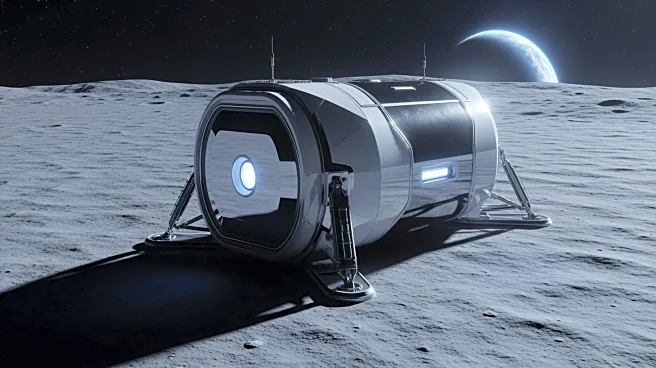What is the story about?
What's Happening?
Federal Reserve officials are divided over the potential for interest rate cuts in September, as inflation remains a pressing concern. Cleveland Fed President Beth Hammack expressed opposition to rate cuts, citing high inflation and a stable labor market as reasons to maintain current rates. Hammack, although not a voting member this year, emphasized the risk of exacerbating inflation by cutting rates prematurely. In contrast, Boston Fed President Susan Collins, who holds a voting position, signaled openness to easing rates if labor market conditions worsen. Collins highlighted weaker payrolls and rising tariffs as factors that could strain consumer spending, suggesting that rate cuts might be necessary to support the economy.
Why It's Important?
The debate within the Federal Reserve reflects broader economic uncertainties, with inflation and labor market dynamics at the forefront. The decision on interest rates could significantly impact U.S. economic policy, influencing borrowing costs, consumer spending, and business investment. A rate cut might provide relief to consumers and businesses facing tariff-related price increases, but it also risks fueling inflation further. The outcome of this debate will affect financial markets and economic stakeholders, as investors closely monitor the Fed's actions for signals on future economic stability.
What's Next?
The Federal Reserve's upcoming meeting on September 16-17 will be crucial in determining the direction of interest rates. Policymakers will assess new economic data to decide whether inflation concerns outweigh labor market weaknesses. The decision will likely hinge on whether recent data supports Hammack's inflation fears or Collins' concerns about labor market fragility. Stakeholders, including businesses and consumers, will be watching closely for any shifts in monetary policy that could affect economic conditions.
Beyond the Headlines
The internal division within the Federal Reserve highlights the complexity of balancing inflation control with economic growth. The debate underscores the challenges of navigating economic policy amid global trade tensions and domestic economic pressures. The Fed's decision-making process will have long-term implications for its credibility and effectiveness in managing economic stability.

















